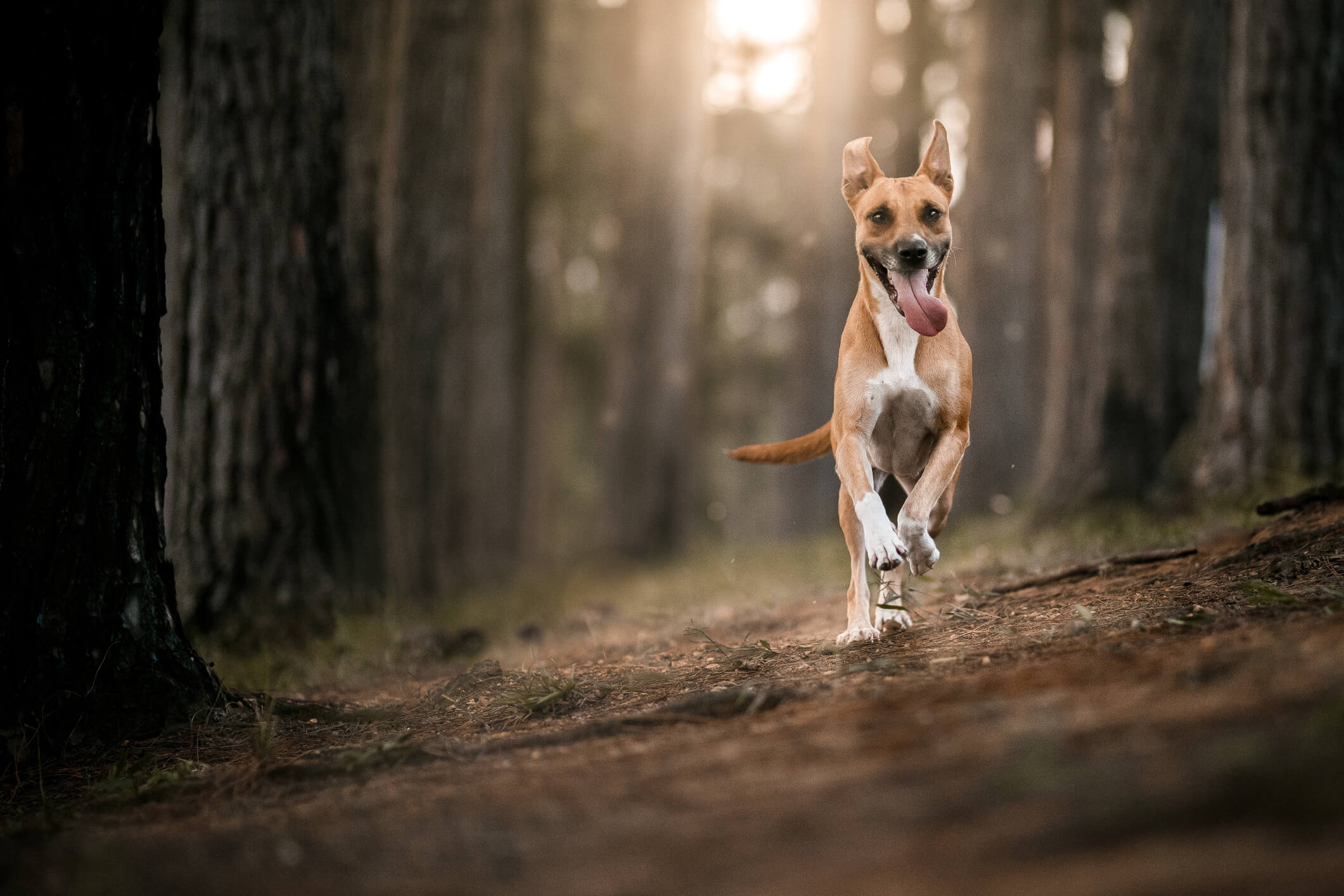
Sporty Dogs Need Special Care for Long-Lasting Mobility
Some pet parents have a hard time motivating their four-legged friends to workout. For others, it’s the complete opposite! Plenty of breeds jump at the opportunity to embark on long treks and swim in the ocean. But with intense exercise comes the risk of injury, which can put a premature end to all the fun.
Athletic pups require extra upkeep to make sure their joints, muscles and ligaments stay healthy all throughout life. Here’s why preventive care is so important for sporty dogs.
Overexercising can injure your pup
Some dogs are natural born athletes. They have a high drive for work and play, often to their own detriment. Pet parents need to set boundaries for athletic dogs like greyhounds and spaniels. If they don’t, the dog will ignore the warning signs of injury because they want to keep playing. This can lead to torn paw pads, muscle pain and tendon ruptures.
Even if you have a naturally athletic breed, some activities are too intense for puppies. They’re still growing, which means the soft growth plates are susceptible to damage. Pet parents should wait until these growth plates have closed up before running the puppy through strenuous activities. Otherwise, attempting intense workouts too soon may cause permanent damage and prevent the dog from maturing properly.
An inconsistent exercise schedule can also take a toll on your athletic pup. Dogs are called “weekend warriors” when they lay on the couch most of the time but go hard all weekend long. This happens when busy pet parents don’t have time to exercise their dogs during the week. When dogs are sedentary, their bodies aren’t conditioned to keep up with the occasional five-mile run or long bike ride. Weekend warriors commonly suffer from blown CCLs, joint displacement and sprained ankles.
Signs of injury in athletic dogs
The most obvious sign something’s wrong is when a dog refuses to keep exercising. Pet parents sometimes overestimate how far a dog can walk or run, and the dog responds by lagging behind or flopping on the pavement. This clearly indicates the pup has been pushed beyond their limits and might even be in pain.
After an intense workout, dogs love to nap the whole afternoon. When they stand up from resting, you might notice a limp or stiffness in their gait. Muscle pain can make everyday tasks difficult, such as bending down to eat or walking up the stairs. Concrete is also very abrasive on the paw pads, especially if your pup was repeatedly skidding to a quick stop. This can wear away the pads and cause blisters, making it difficult to walk.
Injured pups won’t be able to perform their usual exercises. It’s easy to spot a problem when your dog happily chases a Frisbee one day but won’t do it again the next. If your dog shows exercise intolerance, look closer for additional signs of injury. These may include redness, swelling or tenderness at the affected site.

Tips for preventing future injuries
Pet parents don’t have to completely pump the brakes. Your pup can safely enjoy all their favorite activities when you make sure their body is functioning at top performance. Work these healthy habits into your sporty dog’s exercise routine.
- Massages: Massaging your pup is a great post-workout activity. It stimulates blood flow to the muscles for increased recovery speed, which means your dog is less likely to feel sore the next day. Massages can also ease chronic pain, especially for dogs living with arthritis. Consult a vet for proper massage techniques to avoid causing further injury.
- Stretching: Much like humans, stretching is a crucial part of your pup’s post-workout routine. A few gentle stretches will improve flexibility by elongating the muscles. Stretching also moves lactic acid out of the muscles, an exercise byproduct that can lead to tissue damage. Other benefits of stretching include greater mobility, reduced risk of injury and less stiffness after workouts.
- Joint supplements: Joints have the highest risk of sustaining exercise-related injuries. That’s because they undergo tons of pressure as dogs run, jump, twist and turn. A daily joint supplement is highly recommended for athletic dogs because they’re packed with essential nutrients that promote joint health. Dogs with strong bones and supporting ligaments are less likely to develop degenerative joint diseases later in life.
It’s important to recognize when exercise becomes too much for your pup. Just because a dog was born to work doesn’t mean they should exert themselves to the point of injury. As their loving pet parent, you know your dog’s limits better than anyone else. Learn when to cool them off and practice healthy habits so your pup can play until the end of their days.


